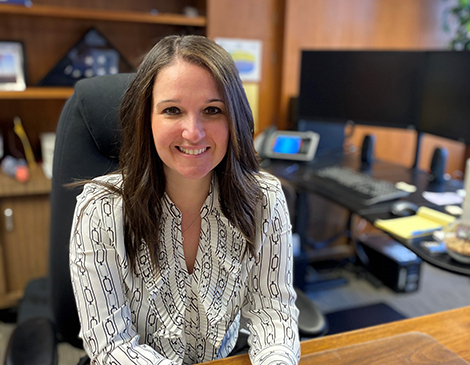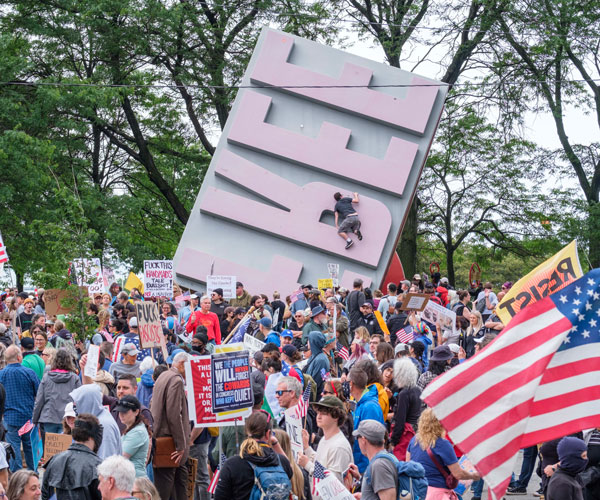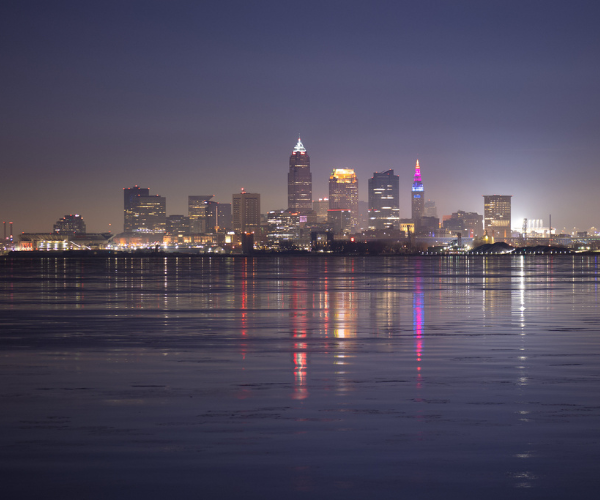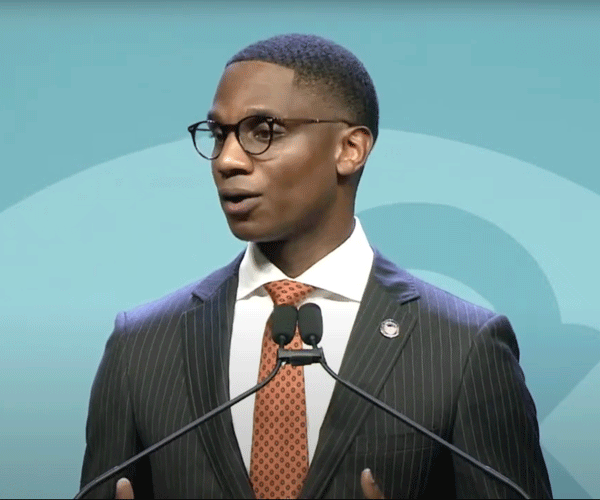Less than three months into her first term as the mayor of Lakewood, Meghan George found herself arriving to work in a nearly empty city hall.
Inaugurated in the wood-paneled council chambers on Jan. 1, by March, she was almost alone in the brick building on Detroit Avenue, its glass-paneled doors closed to the public and most of its more than 400 employees working from home. Alongside her assistant and department representatives, she’d hold in-person daily task force meetings to address the deluge of cancellations, state orders and data reports. Whatever they decided, fresh news would often make them decide again.
Thanks to the coronavirus pandemic, George was now leading Ohio’s densest city through a public health crisis, a test more daunting than many politicians face in their entire careers.
“We certainly were thrown quite the challenge with the global pandemic,” says George, who succeeded longtime mayor Mike Summers. “But a lot of the skills that I’ve learned through the years have applied very much so in this new world we find ourselves in.”
George served for two years on Lakewood City Council prior to her mayoral election, where the 38-year-old beat Democratic opponent Sam O’Leary to become Lakewood’s second-ever female mayor. She says calls from constituents first encouraged her to run. But her interest in public service began long before, around the dinner table in her childhood home. Her father was former Lakewood councilman and mayor Tom George. Almost every evening, the George family would sit, discussing community and national politics and social issues.
“Twenty years of living with him, and I learned a lot through osmosis,” says George, whose father died in 2017. “That was just the culture of our family home.”
George is thoughtful, but strikingly efficient and clear-eyed, with a trust in meticulous planning, communication and team brainstorming that has quickly defined her early tenure.
To deal with the pandemic’s effects, George almost immediately created that internal task force, which keeps every city department in constant contact, and held virtual town halls to gauge concerns on issues such as the governor’s face mask recommendations. Lakewood introduced its Small Business Relief Fund in late March, which provides a grant of up to $3,000 for rent payment reimbursement to companies affected by the pandemic. For the months of April and May, Lakewood recorded more than $3 million in revenue losses. But as of mid-June, it’s avoided laying off any city employees, thanks in part to a voluntary furlough program through SharedWorkOhio that will save the community more than $250,000.
“I had one city employee come up to me and say, ‘I’ve never seen the city collaborate the way it has in the last few months,’ ” says George. “I want to continue to foster that.”
Save four years spent getting her bachelor’s degree at Ohio State University, George has lived her entire life in Lakewood, teaching at Harding Middle School before consulting in the private sector and winning her at-large council seat (she came in first) in 2017.
In many ways, Lakewood is her life. Outside of work, she strolls the city’s parks, hits up its eateries (don’t ask her to pick just one) or relaxes on a Lakewood stretch of sand.
Now George is hoping to implement new benchmarks laid out during her campaign: increased safety measures, including more public cameras to stem crime, renegotiating the development of the former Lakewood Hospital site and continuing the growth of the suburb’s housing market, which the threat of recession may make difficult.
Improbably, she finds herself processing what could be the second major touchpoint of her young career: the nationwide protests and calls for police reform after the killing of George Floyd by a Minneapolis police officer.
On June 2, protestors marched from the City of Cleveland First Police District on West 130th into Lakewood. George was at the police department during the demonstration, and heard from officers, who said they felt sick about what happened to Floyd.
When the march arrived in Lakewood the next day, officers ushered protesters through the city. Some city councilmembers walked alongside protesters, and some officers knelt with the crowd.
“We’ve seen in the protests the need for change. Change comes from the young,” says George, one of the region’s youngest mayors. “It’s encouraging to see so many young people engaged and wanting to improve our society. I want not to live in the status quo, but push the envelope and make things better.”




